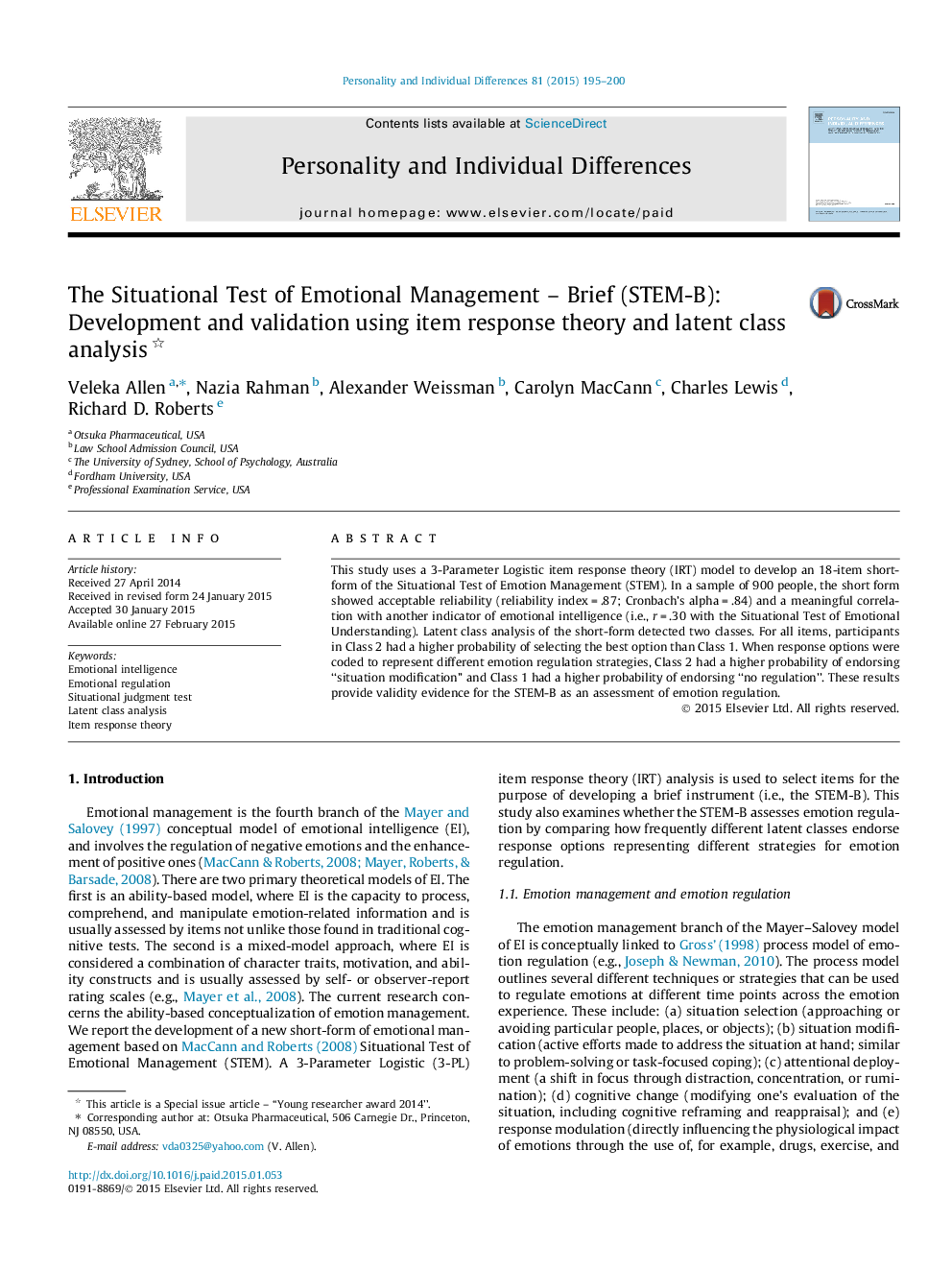| کد مقاله | کد نشریه | سال انتشار | مقاله انگلیسی | نسخه تمام متن |
|---|---|---|---|---|
| 890067 | 1472037 | 2015 | 6 صفحه PDF | دانلود رایگان |

• Using a 3-PL IRT model, the STEM-B was developed.
• The STEM-B has acceptable psychometric properties and detected two latent classes.
• Latent Class 2 had a higher probability of selecting the best option than Class 1.
• Class 2 had a higher probability of endorsing “situation modification”.
• Class 1 had a higher probability of endorsing “no regulation”.
This study uses a 3-Parameter Logistic item response theory (IRT) model to develop an 18-item short-form of the Situational Test of Emotion Management (STEM). In a sample of 900 people, the short form showed acceptable reliability (reliability index = .87; Cronbach’s alpha = .84) and a meaningful correlation with another indicator of emotional intelligence (i.e., r = .30 with the Situational Test of Emotional Understanding). Latent class analysis of the short-form detected two classes. For all items, participants in Class 2 had a higher probability of selecting the best option than Class 1. When response options were coded to represent different emotion regulation strategies, Class 2 had a higher probability of endorsing “situation modification” and Class 1 had a higher probability of endorsing “no regulation”. These results provide validity evidence for the STEM-B as an assessment of emotion regulation.
Journal: Personality and Individual Differences - Volume 81, July 2015, Pages 195–200